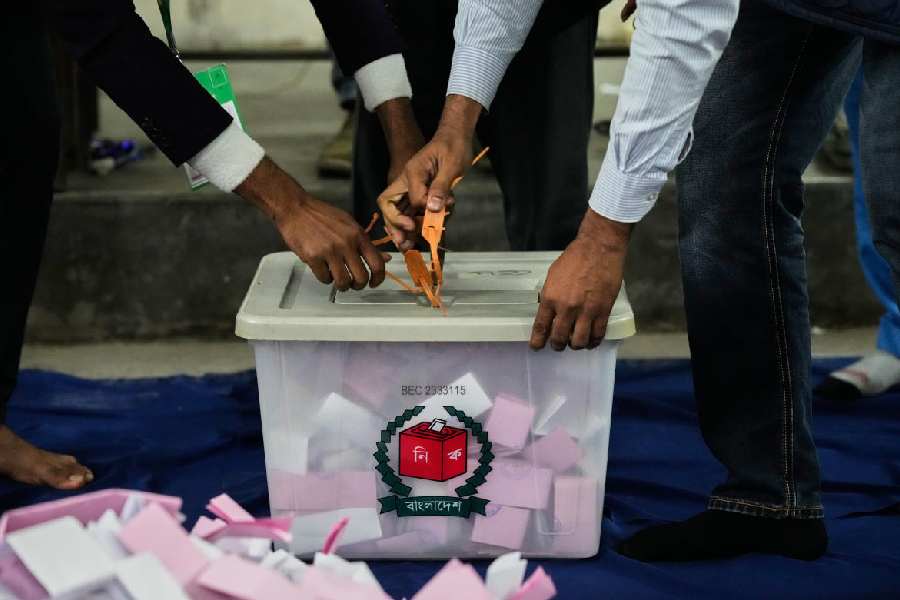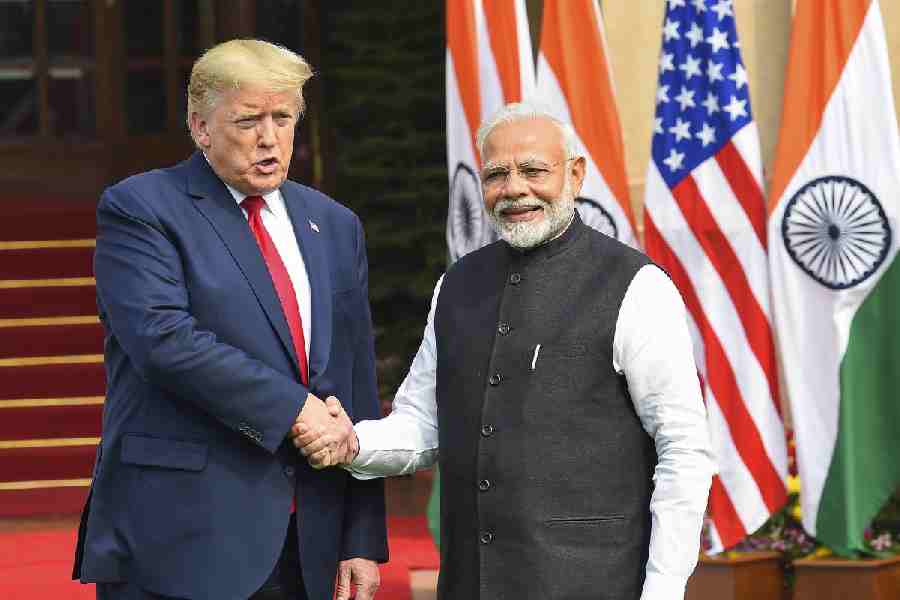
New Delhi, Feb. 1: The government has quietly circulated a note, which seeks to change the companies act to redefine public sector companies as firms in which the government has a 50 per cent stake instead of the mandatory 51 per cent at present.
According to section 2 clause (45) of the companies act, a 'government company means any company in which not less than fifty-one per cent of the paid-up share capital is held by the central government, or by any state government or governments, or partly by the central government and partly by one or more state governments...'
The move could potentially allow the central government to sell stakes in lucrative PSUs in which it holds around a 51 per cent stake.
However, officials said the note was intended not so much for divestment purposes but more to allow the central government set up joint ventures in sectors such as defence and railways where foreign governments and manufacturers are unwilling to join hands or transfer technology unless they have at least 50 per cent ownership.
Hindustan Aeronautics Ltd (HAL) already has two 50:50 defence joint ventures with Russian companies.
The first one was signed in December 2006 with Irkut Corporation to develop and make 60-tonne multi-role transport aircraft. Under this 50:50 arrangement with HAL, Ilyushin Design Bureau of Russia will design and Irkut will develop the aircraft, while HAL will produce it at Kanpur.
Four years later, in December 2010, HAL signed a similar 50:50 joint venture with Rosoboronexport to build a stealth fifth-generation fighter jet, which is to be armed with weapons of Indian origin such as the Astra, a beyond-visual-range missile.
The two joint ventures passed muster because they were cleared by the cabinet committees and were seen as vital to Indian defence.
Though the projects are running behind schedule, the two deals are being seen as examples for similar tie-ups with other countries who need to meet offset norms set by India by investing in domestic manufacture. This is possible only if the foreign investment cap is relaxed, even if partially.
The US gets huge orders from India for aircraft and defence equipment. The offset clause, however, makes it mandatory for the American companies to spend 30 per cent of the order size in India. Hence, defence FDI in India has become a crucial issue for the world's largest economy.
India's own attempts at developing weapons have been plagued by time, cost overruns and faulty products. Its research and development organisation has been struggling to build a good battle tank, fighter jets or even a good assault rifle even as scientists have managed to break tech barriers to produce world-class missiles and rockets.
Bank move
At the two-day meet of bankers in Pune last month, public sector bank executives also called for reworking the shareholding structure of banks to enable them to reduce the government's stake to below 51 per cent to meet their growing funding needs.
The proposal was to set up a holding company for government shares in state-run banks. This holding company could then issue stocks or other financial instruments to the public and even supervise mergers of state-run banks to create mega entities capable of taking on large global banks.
The proposals of the bankers is, however, still at a nascent stage and has to be formally accepted by the finance ministry. However, if this move is accepted, it would well dovetail with the government's desire to change the definition of a government company.











